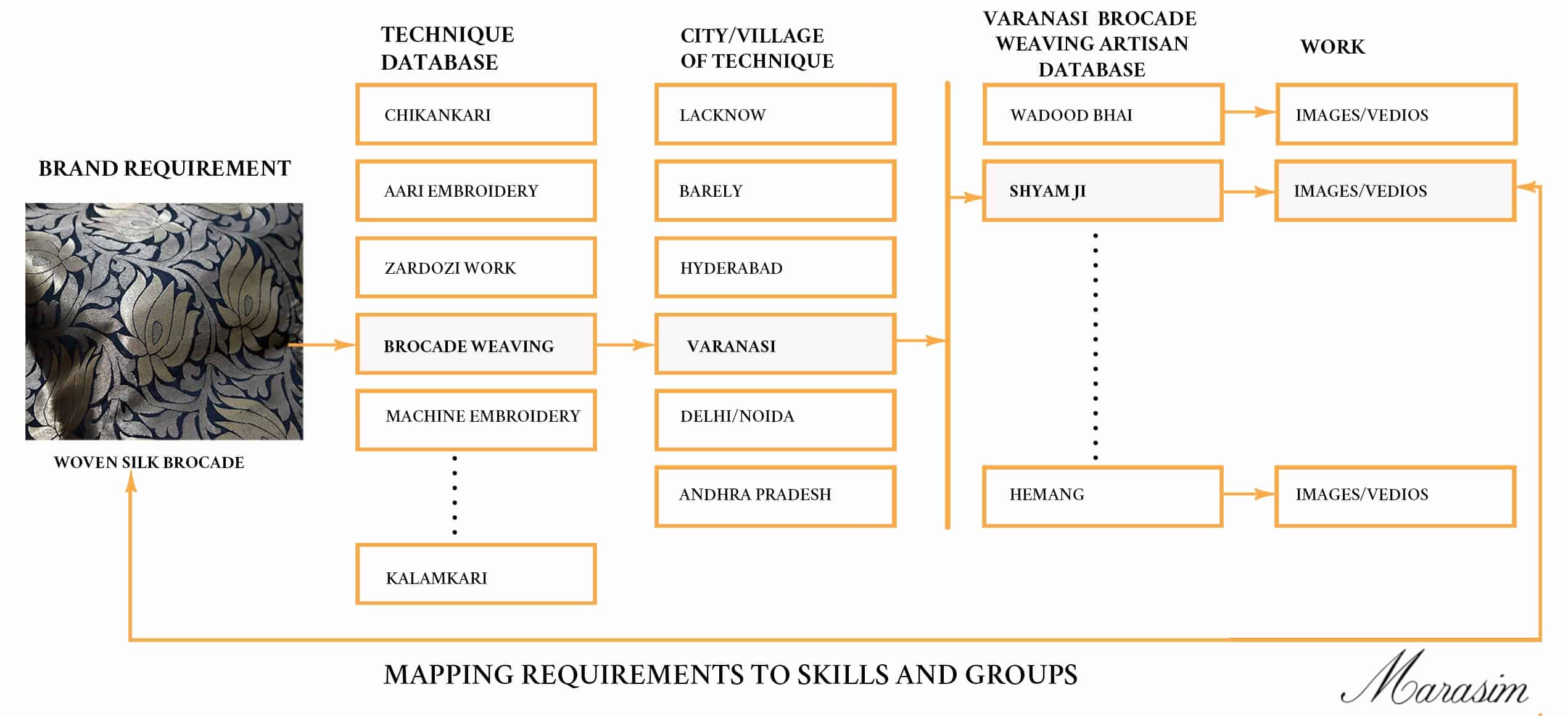16 Apr Working with Craft Communities at the Grassroots Level

Working with the Craft Communities at the Grassroots Level
Marasim was founded on the principle of “Enabling collaborations between the designers and the grassroots craft communities to utilize the traditional craft techniques as a medium of design innovation for luxury. And to help with the longevity of traditional crafts while providing for the livelihood of grassroots artisan communities’’
Over the past 6 years of our operations, the most commonly asked question to us is- What is Grassroots? Is it a place? A rural place? Or is it people? People with limited means? Or is it people with limited means living in rural places?
In this article we will explore who we call our Grassroots community and how we collaborate/work with them while taking care of their well being once they become a part of our craft supply chain.
The following points describe what Grassroots means to Marasim –
1) Migration of craft workers to the cities with lucrative opportunities.
The cost of living in these cities is high. Therefore, these cities do not guarantee, a dignified standard of living in return for artisan’s skill, hard work and sacrifices.
Marasim’s team of Textile Engineers bring opportunities locally to places (big or small) where the artisans are natively based. For clarity, please refer to the chart on the top of this page
Marasim identifies the high end generational skills of different artisan groups and organizes them in a database, as shown in the chart on the top of this page. Once the brands submit their requirements to us, we map them to the current skills and previous work images of the artisan groups in our database. Once this is complete, the Marasim team works on the ground with the artisans combining modern technology with traditional craftsmanship to achieve the desired results and to establish the production processes for the brands.
We work with artisan groups that operate independently under different structures i.e either as NGOs, self help groups, small businesses, individual artisans or cooperatives. Marasim spearheads all of the operations that take place on the ground and delivers quality and timely work to the brands. Therefore, transparency is the most important requirement for us to mitigate any dependency related risk towards our performance for our clients. We have very clear policies that allow us to work directly with each individual in the supply chain. This helps us to enforce complete transparency in our operations, communications and deliverables. The level of transparency that we demand is possible to achieve while working with craft communities at the grassroots. This brings us to our second understanding of Grassroots.
2) Grassroots refers to Gandhian philosophy of a participatory democracy or inclusive citizenship. Everyone shares the opportunity.
i.e instead of following a centralized factory model, Marasim follows a decentralized work distribution and collection model.
This philosophy empowers everyone equally with the same opportunities. It encourages entrepreneurial culture and efficient use of local resources in the supply chain.
Our mission is to enable a sustainable standard of living for our grassroots communities by supporting their continued commercial success. We facilitate this by streamlining craft sourcing, innovation, introduction of technology and development of new processes.
In the next article, we will share graphs and other pictorial depiction of our work with the Craft Communities at the Grassroots Level. Please leave your views or questions in the comment section below. They are much appreciated.
Read More
ABOUT THE AUTHOR
 Nidhi Garg Allen is an alumnus of Parsons School of Design and Adjunct Professor at the Fashion Institute of Technology. She is a technologist turned artisan entrepreneur and the founder and CEO of Marasim. Marasim based in NYC is committed to preserving artisanal textiles that make use of regional techniques without uprooting craftspeople from their native communities
Nidhi Garg Allen is an alumnus of Parsons School of Design and Adjunct Professor at the Fashion Institute of Technology. She is a technologist turned artisan entrepreneur and the founder and CEO of Marasim. Marasim based in NYC is committed to preserving artisanal textiles that make use of regional techniques without uprooting craftspeople from their native communities



No Comments